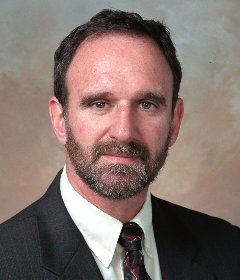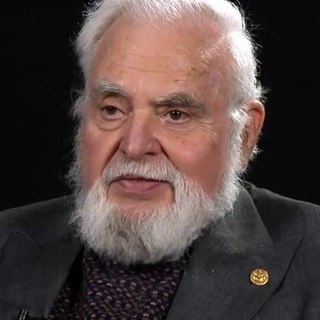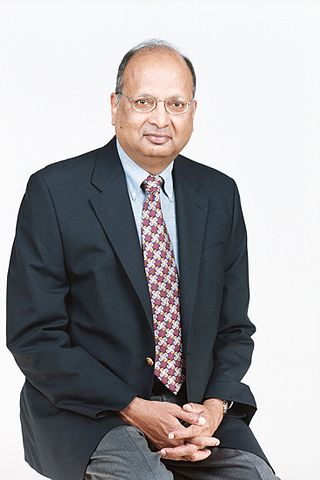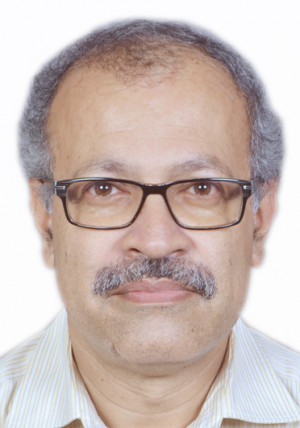Related Research Articles

Neil James Alexander Sloane FLSW is a British-American mathematician. His major contributions are in the fields of combinatorics, error-correcting codes, and sphere packing. Sloane is best known for being the creator and maintainer of the On-Line Encyclopedia of Integer Sequences (OEIS).

Martin Edward Hellman is an American cryptologist and mathematician, best known for his invention of public-key cryptography in cooperation with Whitfield Diffie and Ralph Merkle. Hellman is a longtime contributor to the computer privacy debate, and has applied risk analysis to a potential failure of nuclear deterrence.

Solomon Wolf Golomb was an American mathematician, engineer, and professor of electrical engineering at the University of Southern California, best known for his works on mathematical games. Most notably, he invented Cheskers in 1948. He also fully described polyominoes in 1953. He specialized in problems of combinatorial analysis, number theory, coding theory, and communications. Pentomino boardgames, based on his work, would go on to inspire Tetris.

Jun-ichi Nishizawa was a Japanese engineer and inventor. He is known for his electronic inventions since the 1950s, including the PIN diode, static induction transistor, static induction thyristor, SIT/SITh. His inventions contributed to the development of internet technology and the Information Age.
Arun N. Netravali is an Indian–American computer engineer credited with contributions in digital technology including HDTV. He conducted research in digital compression, signal processing and other fields. Netravali was the ninth President of Bell Laboratories and has served as Lucent's Chief Technology Officer and Chief Network Architect. He received his undergraduate degree from IIT Bombay, India, and an M.S. and a Ph.D. from Rice University in Houston, Texas, all in electrical engineering. Several global universities, including the Ecole Polytechnique Federale in Lausanne, Switzerland, have honored him with honorary doctorates.

Francis Patrick Kelly, CBE, FRS is Professor of the Mathematics of Systems at the Statistical Laboratory, University of Cambridge. He served as Master of Christ's College, Cambridge from 2006 to 2016.

Arogyaswami J. Paulraj is an Indian-American electrical engineer, academic. He is a Professor Emeritus (Research) in the Department of Electrical Engineering at Stanford University.
Jack Keil Wolf was an American researcher in information theory and coding theory.

Richard H. Frenkiel is an American engineer, known for his significant role in the early development of cellular telephone networks.

Christopher Ray Johnson is an American computer scientist. He is a distinguished professor of computer science at the University of Utah, and founding director of the Scientific Computing and Imaging Institute (SCI). His research interests are in the areas of scientific computing and scientific visualization.
Keith Glover FRS, FREng, FIEEE is a British electrical engineer. He is an emeritus professor of control engineering at the University of Cambridge. He is notable for his contributions to robust controller design and model order reduction.

Chai Keong Toh is a Singaporean computer scientist, engineer, industry director, former VP/CTO and university professor. He is currently a Senior Fellow at the University of California Berkeley, USA. He was formerly Assistant Chief Executive of Infocomm Development Authority (IDA) Singapore. He has performed research on wireless ad hoc networks, mobile computing, Internet Protocols, and multimedia for over two decades. Toh's current research is focused on Internet-of-Things (IoT), architectures, platforms, and applications behind the development of smart cities.
V Ramgopal Rao is an Indian academic serving as the vice chancellor of Birla Institute of Technology and Science, Pilani. He was previously the director of IIT, Delhi for six years during 2016-2021.
Sanghamitra Bandyopadhyay is an Indian scientist specializing in computational biology. A professor at the Indian Statistical Institute, Kolkata, she is a Shanti Swarup Bhatnagar Prize winner in Engineering Science for 2010, IInfosys Prize 2017 laureate in the Engineering and Computer Science category and TWAS Prize winner for Engineering Sciences in 2018. Her research is mainly in the areas of evolutionary computation, pattern recognition, machine learning and bioinformatics. Since 1 August 2015, she has been the Director of the Indian Statistical Institute, and she would oversee the functioning of all five centres of Indian Statistical Institute located at Kolkata, Bangalore, Delhi, Chennai, and Tezpur besides several other Statistical Quality Control & Operation Research Units spread across India. She is the first woman Director of the Indian Statistical Institute. Currently she is on the Prime Ministers' Science, Technology and Innovation Advisory Council. In 2022 she was given the Padma Shri award for Science and Engineering by the Government of India.
Tamara Macushla Munzner is an American-Canadian scientist. She is an expert in information visualization who works as a professor of computer science at the University of British Columbia (UBC).
John N. Tsitsiklis is a Greek-American probabilist. He is the Clarence J. Lebel Professor of Electrical Engineering with the Department of Electrical Engineering and Computer Science (EECS) at the Massachusetts Institute of Technology. He serves as the director of the Laboratory for Information and Decision Systems and is affiliated with the Institute for Data, Systems, and Society (IDSS), the Statistics and Data Science Center and the MIT Operations Research Center.

Soumitro Banerjee is an Indian electrical engineer and former director of the Indian Institute of Science Education and Research, Kolkata. He is known for his studies on bifurcation phenomena in power electronic circuits and is an elected fellow of all three major Indian science academies: the National Academy of Sciences, India, Indian Academy of Sciences, and Indian National Science Academy. He is also a fellow of The World Academy of Sciences, Institute of Electrical and Electronics Engineers, West Bengal Academy of Sciences and the Indian National Academy of Engineering. The Council of Scientific and Industrial Research, the apex agency of the Government of India for scientific research, awarded him the Shanti Swarup Bhatnagar Prize for Science and Technology, one of the highest Indian science awards for his contributions to Engineering Sciences in 2003.
Ranjan Kumar Mallik is an Indian electrical and communications engineer and a professor at the Department of Electrical Engineering of the Indian Institute of Technology, Delhi. He held the Jai Gupta Chair at IIT Delhi from 2007 to 2012 and the Brigadier Bhopinder Singh Chair from 2012 to 2017. He is known for his researches on multiple-input multi-output systems and is an elected fellow of all the three major Indian science academies viz. Indian Academy of Sciences, Indian National Science Academy, and The National Academy of Sciences, India. He is also an elected fellow of The World Academy of Sciences, Indian National Academy of Engineering, and The Institute of Electrical and Electronics Engineers, Inc.
Yendluri Shanthi Pavan is an Indian electrical engineer and a professor at the Department of Electrical Engineering of the Indian Institute of Technology, Madras. He is known for his studies on mixed signal VLSI circuits and is an elected fellow of the Indian National Academy of Engineering. He is also a fellow of IEEE. The Council of Scientific and Industrial Research, the apex agency of the Government of India for scientific research, awarded him the Shanti Swarup Bhatnagar Prize for Science and Technology, one of the highest Indian science awards for his contributions to Engineering Sciences in 2012.
References
- ↑ "2016 elevated fellow" (PDF). IEEE Fellows Directory. Archived from the original (PDF) on December 23, 2015.